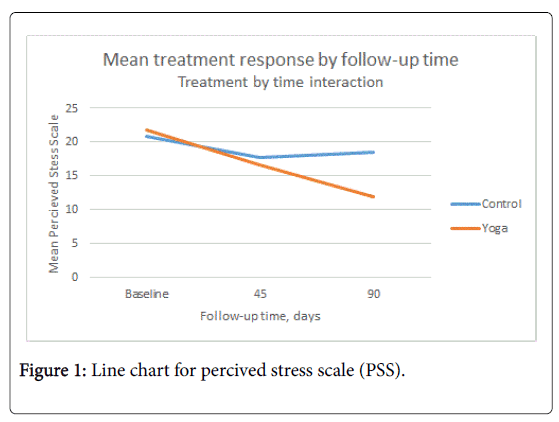The Academic Insight: Adding Yoga to Medically Assisted Treatment for Opioid Dependence

Yoga has been around for thousands of years and many have written and spoken about its benefits. Those benefits are now being tested and quantified by modern scientific research. This research allows an evidence-based approach to the incorporation of yoga into the treatment for mental health and substance use disorders.
A recent article published in the Journal of Addiction Research and Therapy takes a look the role yoga could play in medication-assisted treatment (MAT) for opioid dependence. Researchers from West Virginia University incorporated a yoga practice into patients’ standard MAT routine and tracked the differences compared to those going through MAT without incorporating Yoga.
Researchers saw a significant reduction in perceived stress for those practicing yoga when compared to the control group, who did not have yoga as a part of their treatment. This reduction of stress, seen by those within the yoga group, can help sustain recovery and help build coping skills and resiliency.
This research aims to prove the efficacy of yoga as an evidence-based treatment for mental health and substance use disorders. Through research like this, we can continue to evolve the most successful interventions techniques backed by an evidence-based approach.
Article Citation:
Lander L, Chiasson-Downs K, Andrew M, Rader G, Dohar S, et al. (2017) Yoga as an Adjunctive Intervention to Medication-Assisted Treatment with Buprenorphine + Naloxone. Journal of Addiction Research and Therapy 8: 354.
—
Intent Clinical provides private substance abuse disorder and addiction support services for individuals and families impacted by addiction. Contact us online or call 617.910.3940 for more information and to schedule a consultation with a member of our caring team.

